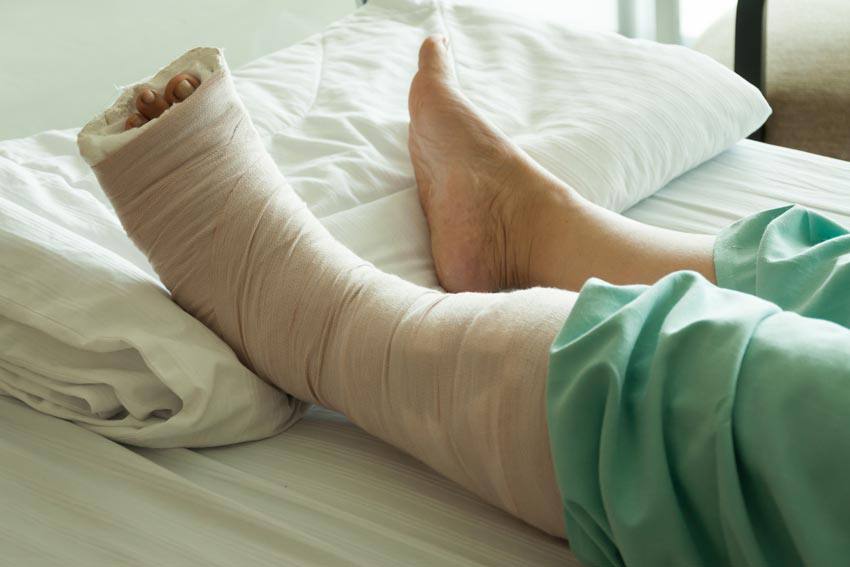Why travellers prefer Blue Cross
- Canada's #1 travel insurance brand and recognized worldwide
- Over 75 years of expertise in insurance
- $5 million travel insurance coverage, with or without deductible
- Flexible and affordable travel insurance solutions
- Free quote available online
- Travel assistance available 24/7 for any emergency, anywhere you travel

Helping seniors prevent falls and fractures
Published on: May 1, 2016
As we get older and our bones become more fragile, we become more prone to falls and fractures. Something as simple as tripping over an item on the floor and taking a tumble can cause serious injuries that we might have shaken off quickly in our younger days.
Falling is a fear that many seniors share, and potential dangers can be anywhere: stairs, uneven sidewalks, slipping in a bathtub and even getting in or out of a vehicle. Seniors living in long-term care facilities are also at risk, and Osteoporosis Canada is now focusing on guidelines for prevention to reduce the number of fractures and other injuries that seniors experience due to falls.
Dr. Alexandra Papaioannou is a geriatrician and the lead author of the guidelines, which were published in the Canadian Medical Association Journal. “The change is now to reduce the risk of fractures, (and) you need to look at osteoporosis risk factors as well as fall-reduction strategies," she says in the Toronto Sun.
How much of an impact can slip and falls have on seniors?
“Almost half of the women living in long-term care who suffer a hip fracture will die within one year, compared to 20 per cent among those in the community. And up to 30 per cent of residents have vertebral fractures, which also increase their risk of death,” says the author of the Toronto Sun article, Sheryl Uberlacker. It’s clear that slip-and-fall episodes are very serious and can even be life-threatening in some cases.
To help reduce cases of slips and falls, Osteoporosis Canada has set the following key strategies for prevention:
- Make sure to get 1,200 mg of calcium per day, and take a supplement if you don’t get your daily intake from food
- Take a vitamin D supplement (800 to 2,000 IU/day)
- Use hip protectors
- Exercise regularly
- Have regular medication reviews
- Assess environmental hazards at home and when in public
- Use assistive devices as necessary
For seniors who are at increased risk, such as those with a history of a hip fracture, who are at high risk for a fracture or who currently have or have had a vertebral fracture, additional steps should be taken to reduce the risk of a slip and fall. Talk with your doctor about precautions and care options.
Other tips to prevent slips and falls
Many slips and falls can be prevented. Here are some tips people of all ages can use to reduce their risk:
- Wear appropriate footwear for the weather conditions
- Avoid engaging in activities that put you at high risk of falling
- Keep your home clear of tripping hazards
- Make sure your home has proper lighting
- Use assistive devices if necessary
- Ask for help when you need it
- Install slip prevention mats in your home, especially in the bathroom
- Avoiding lifting or carrying loads that may be too much for you
- Keep active to maintain strong bones and muscles
- Eat a well-balanced diet
- Follow any advice from your doctor
If you feel that you may be at risk for osteoporosis, talk to your doctor about your care options.